| Is it only dangerous for some people? |
Illness due to infection is generally mild, especially for children and young adults. It mostly affects the elderly and those with other underlying conditions. But even if you have mild or no symptoms, you can still infect others. |
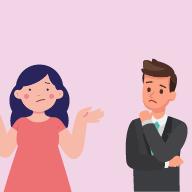 |
| What should I know if I am caring for someone with the coronavirus? | You should wear disposable gloves and a facemask whilst caring for someone who has been infected. Frequently touched surfaces should be cleaned regularly with a disinfectant (e.g. alcohol or bleach containing solution) and bed linens, towels, and textiles should be washed using a hot-water cycle (90°C). Used tissues, masks, etc., should be disposed of preferably in a separate closed bin. |
 |
| How do I protect myself? |
Regularly wash your hands with soap and water for at least 20 seconds or use an alcohol-based disinfectant solution. Cover your mouth and nose with the crook of your elbow when you cough or sneeze or use a tissue and dispose of it immediately. Avoid touching your eyes, nose and mouth without washing your hands first. Keep 1 to 2 meters away from anyone coughing or sneezing. Stay at home where possible. |
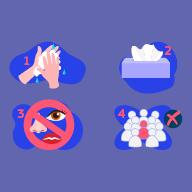 |
| I feel fine and I do not have any symptoms. Does this mean it is safe for me to meet other people? | Some people become infected, but do not develop any symptoms or those are very mild and may go unnoticed. However, these people may still infect others. It is important to protect yourself – and others – by practising strict hand hygiene, cough etiquette and physical distancing. |
 |
| What do I do if I have symptoms? |
Contact your GP or phone the nearest emergency department and describe your symptoms. You can also consult your national health authority website for more information.
|
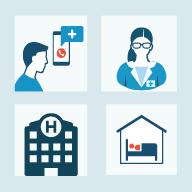 |
| Is there a vaccine or treatment available? | Yes! Vaccines and treatments are available. |
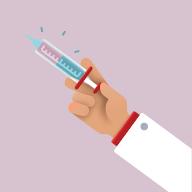 |
| What should I do if I am told to isolate at home? |
Stay at home (i.e. don’t go to work, school or public places). Clean and disinfect your home, particularly frequently touched surfaces and toilets. Self-monitor for coronavirus symptoms, including fever, cough and difficulty breathing. If symptoms develop, call your local health care services for advice. |
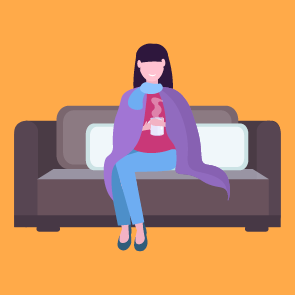 |
| What should I do if I feel anxious or stressed about coronavirus? | Continue to talk to family and friends over the phone or online. Avoid news that might cause you to feel anxious or distressed; take practical steps to protect yourself and loved ones. Understand that this is an exceptional situation that requires exceptional measures to bring the end to the epidemic as quickly as possible. |
 |
| What is social distancing? | By keeping away from other people, you reduce the risk of breathing in droplets, which include the virus, or contaminating other people. Avoid crowds of people, peak hours in supermarkets or on public transport. But remember, social distancing does not mean no contact: stay in touch with friends and family by phone, social media or online apps. |
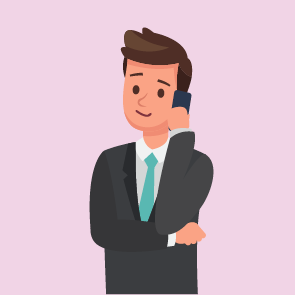 |
|
What should I do if I intend to travel? |
If you intend to travel, check Re-Open EU for the latest information for your destination country, including local requirements on quarantine, masks, etc. If travelling by air, read the ECDC/EASA advice on how to protect yourself and others. At tourist establishments, like hotels, restaurants, bars and cafes, remember the main precautionary measures: physical distancing, hand hygiene, cough etiquette. |
 |
|
As the measures are relaxed, do I still need to follow this advice? |
While the numbers of people infected with COVID-19 have generally decreased across the EU, the possibility that the virus rebounds is still present. This is not the time for a sense of false security, so stay vigilant and healthy by maintaining strict hand hygiene, physical distancing, cough etiquette and face protection when recommended. |
 |
